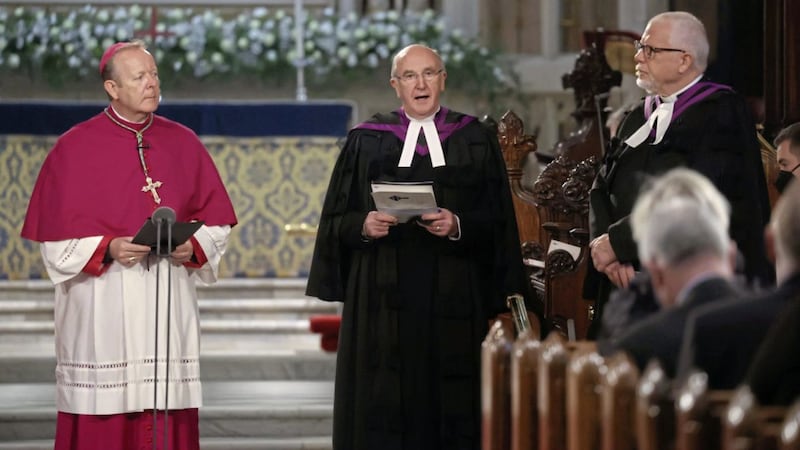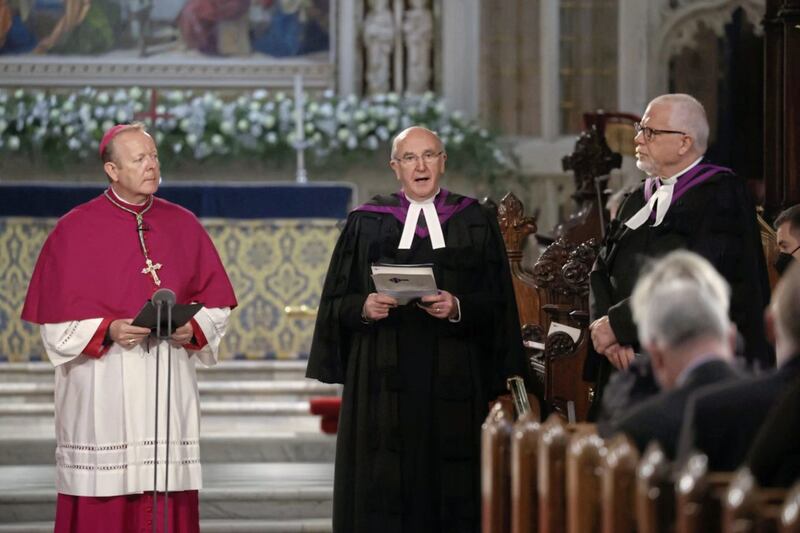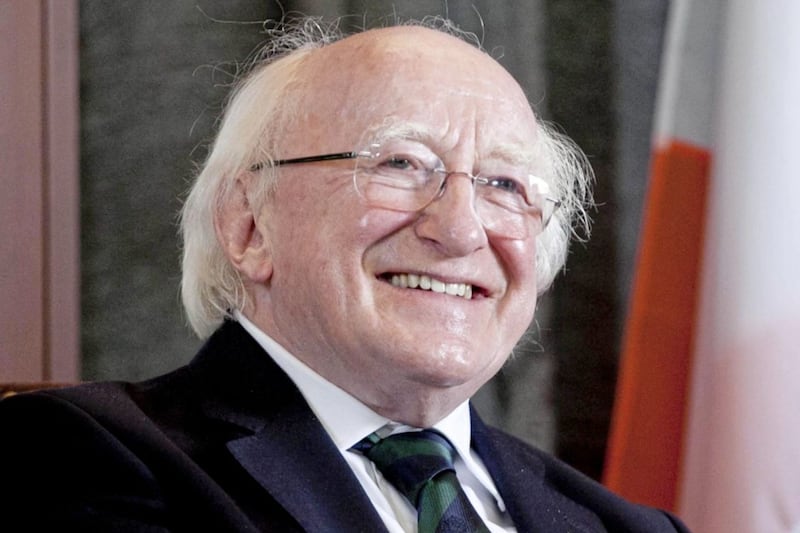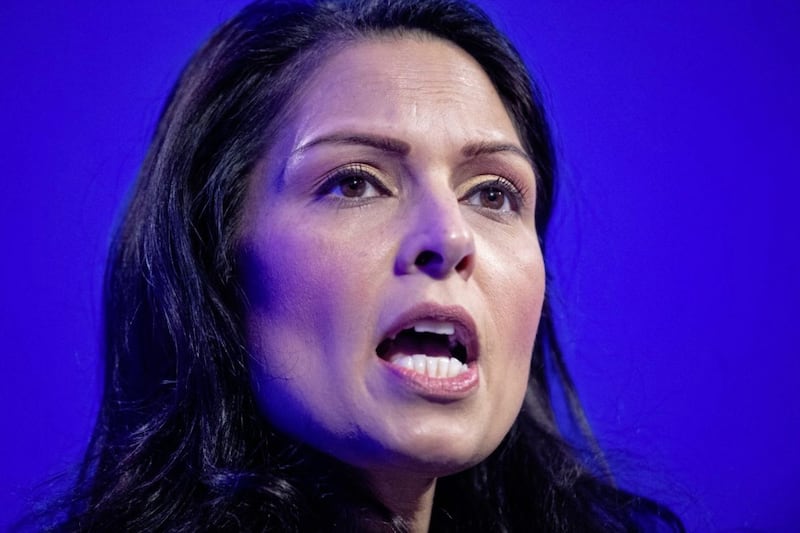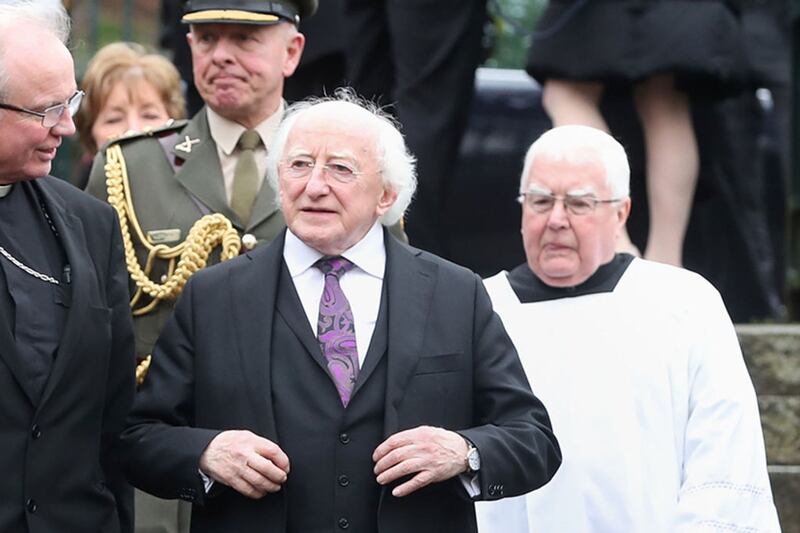Think 100 years ahead.
Within whatever constitutional frameworks that hold sway in these islands and continent, historians will reflect on the 200th anniversary of the Partition of Ireland.
They may assess how something called Brexit impacted on the political and constitutional furniture of this archipelago, hastening the undoing of Partition and vindicating Sir James Craig’s assessment that “Ireland is too small to remain divided for ever.”
Those historians may have studied Cabinet papers from an old Irish government answering questions around a long-forgotten controversy in autumn 2021 when the President of Ireland declined an invitation from Ireland’s Church leaders to join his fellow head of state from Britain in “A Service of Reflection and Hope to mark the Centenary of the partition of Ireland and the formation of Northern Ireland” in St Patrick’s Church of Ireland Cathedral in Armagh, Ireland’s ecclesiastical capital.
Had the two heads of state, President Higgins and Queen Elizabeth II attended (the Queen was absent on medical advice but maybe future British Cabinet papers will say more) they would have heard a gathering prayer from the Dean of Armagh, the Very Rev Shane Forster, which said in part: “As we lament our failures, sorrows and pain, and recognise our wounded yet living history, may we with a united voice commit ourselves to work together for the common good, in mutual respect and with shared hope for a light filled, prosperous and peaceful future.”
And the President and Queen would have then joined the congregation in praying: “… Lord, we confess to you and to each other, that we have wounded each other and our communities in the past. We are sorry and ashamed and ask for your forgiveness, so that together we may move forward in faith, grow together in love, and faithfully serve you all our days. We ask this through our Saviour Jesus Christ. Amen.”
Those most appropriate and sensitively crafted prayers would also be so fitting for, say, the shared Day of Reflection and Reconciliation supported by Eames-Bradley in 2009, modelled on the pioneering Healing Through Remembering initiative.
Those prayers set the tone for the most inclusive ecumenical service imaginable, with an opening prayer in Irish and a liturgy enriched by the stars of the occasion, the young people who articulated “the hope, dreams and aspirations of the next generation.”
Seriously, how could anyone have objected? By no stretch of the imagination could this religious service be seen as a celebration either of the calamity of partition or of the deeply flawed polity that is Northern Ireland.
When I first heard that President Higgins had turned down the Armagh invitation I thought he must be right. His track record in working for reconciliation has been good and his Machnamh 100 initiative and the focus on “ethical remembering” and his critique of imperialism most timely. No nationalist and certainly no Irish president could participate in a celebration of the partition of his country.
However, as details of the October 21 service emerged it became obvious that this was no such celebration though some, especially Sinn Féin, brazenly insisted otherwise, even after the service.
As seminal and contentious a moment in our history as the partition of Ireland and Northern Ireland’s creation had to be marked after 100 years. Our Church leaders stepped up to the plate. They acknowledged the Churches’ many failings in the past, and on this most delicate and problematic of occasions and after a year of hard endeavour delivered a prayer service “in lament for past failures and in hope for a better and more reconciled future,” in Archbishop Eamon Martin’s words in The Irish Times.
The Church leaders surprised many by showing leadership. Their ambition to have both heads of state present was in the common good and conducive to the healing that is so badly needed here. President Higgins made the wrong call in staying away and, regrettably, hasn’t enhanced his standing.
